The Animal Kingdom
Tom Collier has had a great relationship with Daisy, but when he decides to marry, it is not Daisy whom he asks, it is Cecelia. After the marriage, Tom is bored with the social scene and the obligations of his life. He publishes books that will sell, not books that he wants to write. Even worse, he has his old friend working as a butler and Cecelia wants him fired. When Tom tries to get back together with Daisy to renew the feelings that he once felt, Daisy turns the tables on him and leaves to protect both of them.
The Animal Kingdom (also known as The Woman in His House in the UK) is a 1932 American pre-Code comedy-drama film directed by Edward H. Griffith based upon a comedy of manners play of the same name by Philip Barry. The film stars Leslie Howard, Ann Harding, Myrna Loy, William Gargan, Ilka Chase, and Neil Hamilton. Howard, Gargan, and Chase also starred in the play when it opened on Broadway on 12 January 1932.
Plot
Tom Collier (Leslie Howard) is the owner of Bantam Press, a publisher of important and meaningful (but not wildly popular) books and a printer and binder of volumes that represent the best of the bookbinder’s art. He and the men who work in his press and bindery find great satisfaction in their work but neither avocation has made Tom rich or successful in his father’s eyes. For three years, he has been living with his best friend and longtime lover Daisy Sage (Ann Harding), without being married. (Tom jokes that one of the reasons he has resisted the idea of marriage is because he “was exposed to a bad case of it as a baby,” presumably a reference to his parents’ unhappiness.) Daisy is a successful commercial artist for a fashion magazine. She has just returned from three months in Paris.
Waiting in Tom’s Connecticut house to have dinner with a long-overdue Tom, attended by Tom’s quirky ex- boxer manservant Red Regan (William Gargan ), his wealthy banker father, Rufus Collier (Henry Stephenson), describes his lifelong frustration with his son to Cecelia “Cee” Henry (Myrna Loy) and Owen Fiske (Neil Hamilton), a family friend and attorney. Tom has had every advantage, including education at both Harvard and Oxford, and a position at the bank. His father is now afraid that Tom might actually marry Daisy. Cee reassures him on that score: She is going to marry Tom in June. Owen is surprised and crushed (he thought that she loved him) but Tom’s father doesn’t notice and approves wholeheartedly.
Tom arrives at last, two hours late. A radiogram from Daisy indicates that she is already home. In private, he explains to Cee about Daisy and their queer sort of arrangement, ”free as air.” Among other things, she made him a better person, and Daisy was the first to realize that they haven’t been “in love” for a long while. It is important that she be told immediately, so Tom is going back to town. Rufus is incensed, but Cee is all understanding, to the mystification of his father.
Daisy welcomes Tom to her apartment overlooking the East River, bursting with joy. Two exciting things happened while she was away. She now believes that if she works hard enough, she can “really” paint. She is counting on his advice, and wants Tom to go to Mexico with her for a month, in June. The second thing: She fell in love with a little boy on the boat back from Europe. It made her realize: She is still deeply in love with Tom; she was a fool to refuse all his proposals; she wants his child. She reads “something terrible” in his face.
Tom tries to tell her about Cecelia. He can’t really explain the experience-he has known her less than a month. They are not lovers. Daisy, growing angry now, says “Good-Bye…’til Doomsday.” Tom is dazed and confused; he thought they could still be friends. While Daisy looks for a packet of his shirts in the bedroom, talking about how they might have a goodbye ceremony, he slowly walks out of the apartment.
A snowy winter day in New York, at least two years later: Tom pauses at a gallery to read the announcement of the first showing of Daisy’s work. That Saturday evening in the Connecticut house, Cee and her friend Grace (Ilka Chase) are having after-dinner coffee. It soon becomes clear that things have changed. Cee and Tom are supposedly going into town, to Daisy’s first showing, but Cee has plans to stop that. She accepts Grace’s latest invitation to one of her Sunday breakfasts, although Tom has assiduously avoided them, as he has his father’s invitations to dine with him and spend the night in town. Cee has persuaded Tom to publish a book that is “the worst tripe” that Bantam ever published, but sells wonderfully. Red comes home tipsy, and Cee confides to Grace that Tom is going to fire him.
Cee asks Tom about his old friends. He hasn’t seen them, and Daisy refuses to talk to him. Cee fakes a headache, and suggests Tom send a telegraph instead. Her strategy doesn’t work; when she realizes that Tom will just go to the showing anyway, she goes upstairs to change. Her plot to get rid of Red doesn’t come off quite as planned—Red is plastered (on his day off) because he has been trying to tell Tom for a week that he has an offer of a job running a country gym with a bar attached. Tom is overjoyed for Red but downcast at losing his friend. Cee comes downstairs in the negligee she wore on their honeymoon in Quebec, and Tom is soon more than willing to skip the opening and come upstairs. She changes her tune yet again and tells him to go on, without her. He stays and sends a telegram instead.
Tom sees Daisy’s exhibition later and shows up uninvited at her apartment, where she and her girlfriend and neighbor, cellist Franc Schmidt (Leni Stengel ) are reading reviews. He receives a cold reception, which warms up when he gives her honest—and insightful—criticism of her work. She is painting too fast, as if she still had a magazine deadline to meet (she quit her job the year before.) They fall into their old way of talking and arguing, and at last confess to missing each other terribly. He says they need each other and she agrees that they can be friends, but with no secrets from the world—and they aren’t in love anymore. They kiss briefly, and Tom asks her for lunch the next day and, overflowing with joy, pours out a list of dates for the whole week, ending with that very night at 10 to 5 pm. They kiss, and he leaves. Daisy snaps out of it and frantically runs across the hall to get Franc to help her pack. She is terrified. She loves him more than ever and is running away. Weeping, she asks Franc to take a painting he admired to him and to kiss him for her.
Months later, Tom’s father arrives at the Connecticut house. He wants Cee to persuade Tom to move into town and live with him for the winter, and he wants her to plan a surprise birthday party and invite all of Tom’s old friends so Tom can see how he has outgrown them. Cee also promises her father-in-law she will find a way to get rid of Red, who is back: He was sick and down on his luck, and Tom rescued him.
Cee calls Daisy and invites her, Franc and novelist Joe Fiske( Don Dillaway), Owen’s younger brother, to the party and to spend the night. Daisy, back from Nova Scotia, tries to stay away, but can’t believe Tom is happy. She loves him deeply and is heartsick She wants to find out the truth, and calls Cee back to accepts the invitation.
At the party, Red is passing small brandies to the guests and reserving a large glass for Tom. He tells Daisy the party isn’t much fun, and when he tries to listen to the fight on the radio, Tom, who is already drunk, tells him to act like a butler. Daisy is reading the galleys for the “ latest rotten egg “ to be laid by the Bantam Press. Apparently all Tom cares about is money; Joe tells her that Tom might hook up with the infamous Williams and Warren, publishers of tawdry mass- produced romances. Fiske also tells Daisy he spent a long time talking to Cee and she seems an attractive woman. “So was Delilah,” Daisy replies.
Meanwhile, Cee tells Owen that she is no longer jealous of Daisy, and adds the lie that Daisy has been seducing Joe. She uses Owen’s attraction to her to get him to persuade Tom to sell out, even though it is a violation of ethics and a conflict of interest, because Owen is counsel to Williams and Warren. When he agrees to help, she calls him darling, but their kiss is interrupted by Daisy. Cee tells her the good news about the sale.
Daisy, Franc and Joe pack and leave early. Joe doesn’t really get it; Franc can see that Daisy is now desperate to get away. There are superficially civilized farewells with Cee. Daisy tells a shamefaced and astonished Tom that she pities him with all her heart and that she found out what she needed to know. He asks “What?” and grips her wrists so hard that she has to ask him to let go. She doesn’t answer his question. They leave, this time they both say “goodbye.” Tom’s father is the last to leave the party.
On the night of the birthday party, Cee locks Tom out of her bedroom, angry because he won’t promise to do any of the things she wants.
The next evening, she changes her tactics. Tom returns home from work and tells Cecelia that the sale of his business is all but complete—he only needs to sign the contract in front of a notary in the morning. He then speaks of having a child, and Cee’s face, unseen by him, turns to stone. They meet in her sitting room, where she has supper ready, with champagne to toast their future. Throughout the scene, the audience can see what Cecelia cannot: Tom’s reactions.
Tom muses aloud that Cecelia’s sitting room reminds him of someplace, he can’t quite think where. He remembers—a private room at The Florentine, run by Flora Conover, a sort of hotel, once the best place in London, 20 guineas on the mantelpiece in advance, the lady most artful… At the last, Cee recognizes that he is talking about a brothel and will hear no more.
Angry and hurt, Tom demands to know why she locked him out the night before. She says it was because he was so “disagreeable,” particularly when it came to his father’s wishes that they come and live with him. She asks about his father’s birthday gift. He can’t decide whether to send it back or just not cash it. She doesn’t understand why Tom won’t accept his father’s invitation. Tom knows that it would be bondage, giving up what little integrity he has left. He shows her the check, and she is astonished and delighted at its size: “There isn’t that much money in the world!” Then he asks what would happen if he ceased to be “disagreeable” and did what she wants, and she melts. Their flirtatious conversation is full of double meaning, and Tom continues with quotes that go over Cee’s head. She does not blink when he says “your lips drop honeycomb and your mouth is smoother than oil.” He is referring to Proverbs 5:3 “For the lips of the adulterous woman drip honey, and her speech is smoother than oil.”
Cecelia gaily promises “no more locks,” and with each champagne toast (which Tom does not actually drink), she grows more seductive. At last, telling him not to be long, she slinks into the bedroom.
Tom rings for Red, and when Red tells Tom he is off for good, Tom asks to borrow his pen. Tom endorses his father’s check to Cee and tucks it into the finial of an ornate clock murmuring, “on the mantelpiece.”
Tom insists on driving Red to the station, halting Red’s protests by adding, gravely, “I’m going back to my wife…to my wife,” referring to Daisy. They walk out, and the camera pulls back and pauses for a moment on the empty living room.
Important Information for Viewers
In the penultimate scene, in her sitting room, Cee teasingly accuses Tom of “having the quotes,” and he certainly does. The revealing phrases all go over her head:
“The little more and how much it is” is from Stanza XXXIX (39) of “By the Fire-Side” one of Robert Browning’s poems to his wife, Elizabeth Barrett Browning: “Oh, the little more, and how much it is! And the little less, and what worlds away!”
“…infinite riches in a little room” is said by the title character of Christopher Marlowe’s The Jew of Malta, a wealthy miser: “This is the ware wherein consists my wealth; And thus methinks should men of judgment frame Their means of traffic from the vulgar trade, And, as their wealth increaseth, so inclose Infinite riches in a little room.”
“Little lamb, who made me?… Red, dost thou know who made me?” refers to William Blake’s poem The Lamb.
Although he knows the custom of the house at The Florentine, Tom never states that he was a regular client. Given the fact that the purchasing power of 20£ in 1932 was the equivalent of more than 1,300£ or $1,740 in 2019, and that guineas (21 shillings instead of 20) would be worth even more, it seems unlikely. Perhaps he was there for a “celebration” when he was up at Oxford.)
Cast
Ann Harding as Daisy Sage, illustrator and artist
Leslie Howard as Tom Collier
Myrna Loy as Mrs. Cecelia ‘Cee’ Thomas Collier
William Gargan as ‘Red’ Regan, Tom’s Butler
Neil Hamilton as Owen, a lawyer
Ilka Chase as Grace – Cee’s Friend
Henry Stephenson as Mr Rufus Collier
Leni Stengel as Franc Schmidt, Cellist, and Daisy’s friend
Don Dillaway as Joe Fiske – One Of Tom’s Authors
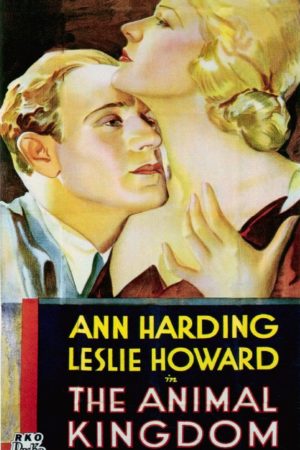
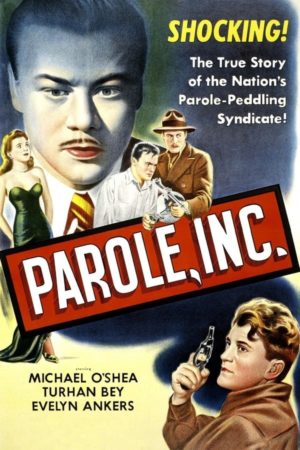
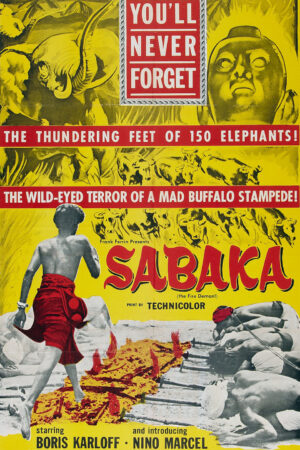
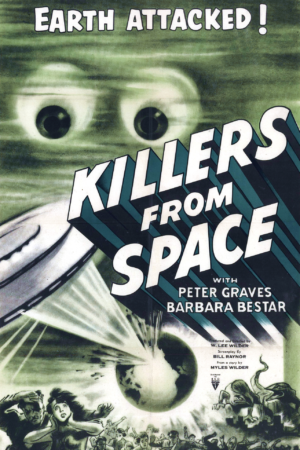

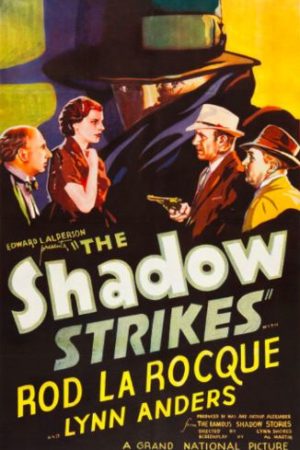
There are no reviews yet.